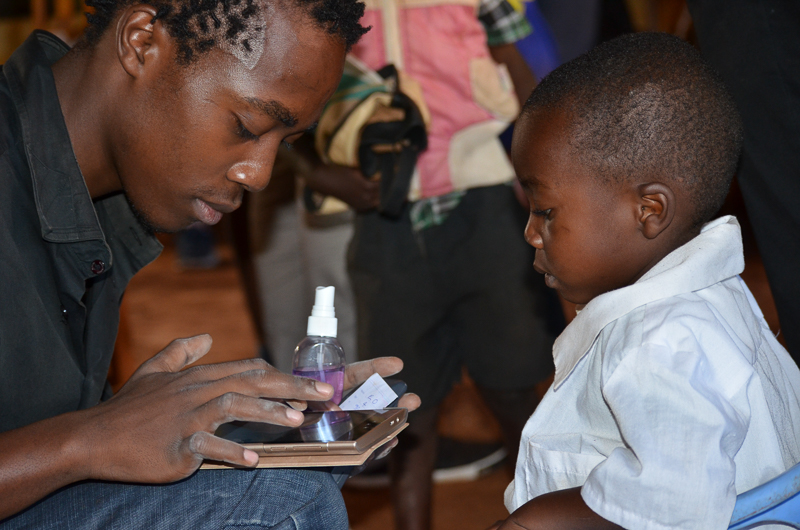
Simprints wins Saving Lives at Birth challenge to prevent maternal and child deaths
Our goal is to radically disrupt the inaccurate way we currently track and deliver social impact, instead building a world where every person - not guesswork - actually counts in the fight against poverty.
Toby Norman
Tech start-up Simprints has won a $2M innovation prize to prevent maternal and child deaths in the hardest-to-reach regions of the world.
Simprints was co-founded by Gates Cambridge Scholars Daniel Storisteanu [2012], Toby Norman [2011] and Alexandra Grigore [2012] alongside Tristram Norman. A nonprofit tech company, it builds open source software and biometric hardware to empower mobile tools used by researchers, NGOs, and governments fighting poverty around the world
After a rigorous review by global health experts, the start-up was selected among 15 of the world’s most promising ideas to prevent maternal and child mortality by Saving Lives at Birth, a 'Grand Challenge for Development' funded by the Gates Foundation, USAID, UKaid, and the Canadian, Korean and Norwegian governments. The 15 winners beat over 550 other applicants to secure funding to develop, refine and launch their innovations.
Simprints will use the $2M prize to scale their current project covering 22k patients in Bangladesh with BRAC, the world’s largest NGO, nationwide across 24 districts, reaching 4.85M mothers and children over the next three years. Simprints simultaneously received a $250k innovation award to begin R&D on neonate fingerprinting technology that can improve vaccination rates across the developing world.
Cambridge giant ARM Ltd, whose microchips power over 95% of the world’s smartphones, has announced that they will match the prize to the tune of $200k to expand Simprints’ integration with leading global health technology platforms. Through their 2030 Vision agenda ARM has previously supported Simprints with engineering expertise and $350k of funding, bringing the total to over $500k of support for their fellow Cambridge technologists.
Toby Norman said: "Simprints has developed biometric technology that is 228% more accurate with the scarred, worn fingerprints typical of 'last mile' beneficiaries. Simprints empowers already existing mobile tools used by NGOs and governments to deliver essential services like healthcare at the frontlines. Our goal is to radically disrupt the inaccurate way we currently track and deliver social impact, instead building a world where every person – not guesswork – actually counts in the fight against poverty."
The Saving Lives at Birth partnership, launched in 2011, includes the US Agency for International Development (USAID), the Norwegian Agency for Development Cooperation (Norad), the Bill & Melinda Gates Foundation, Grand Challenges Canada (funded by the Government of Canada), the UK’s Department for International Development (DFID), and the Korea International Cooperation Agency (KOICA). It aims to address the 303,000 maternal deaths, 2.7 million neonatal deaths, and 2.6 million stillbirths that occur each year around the world.












